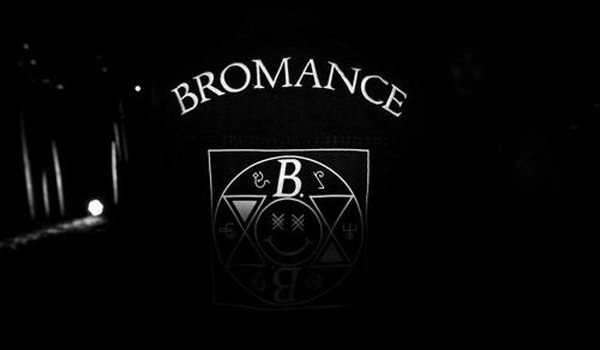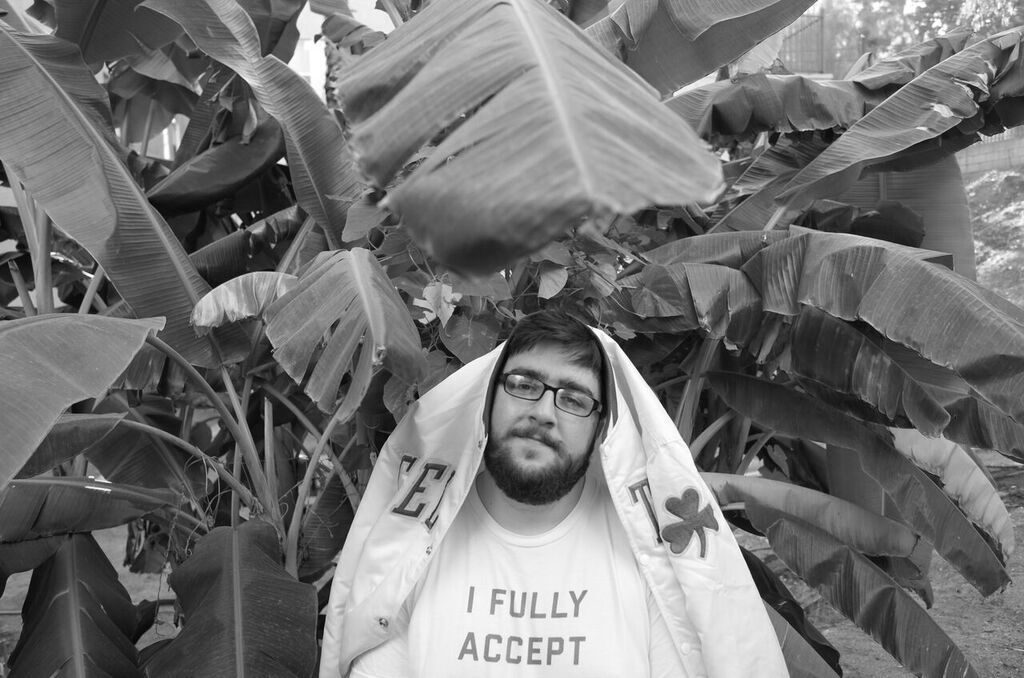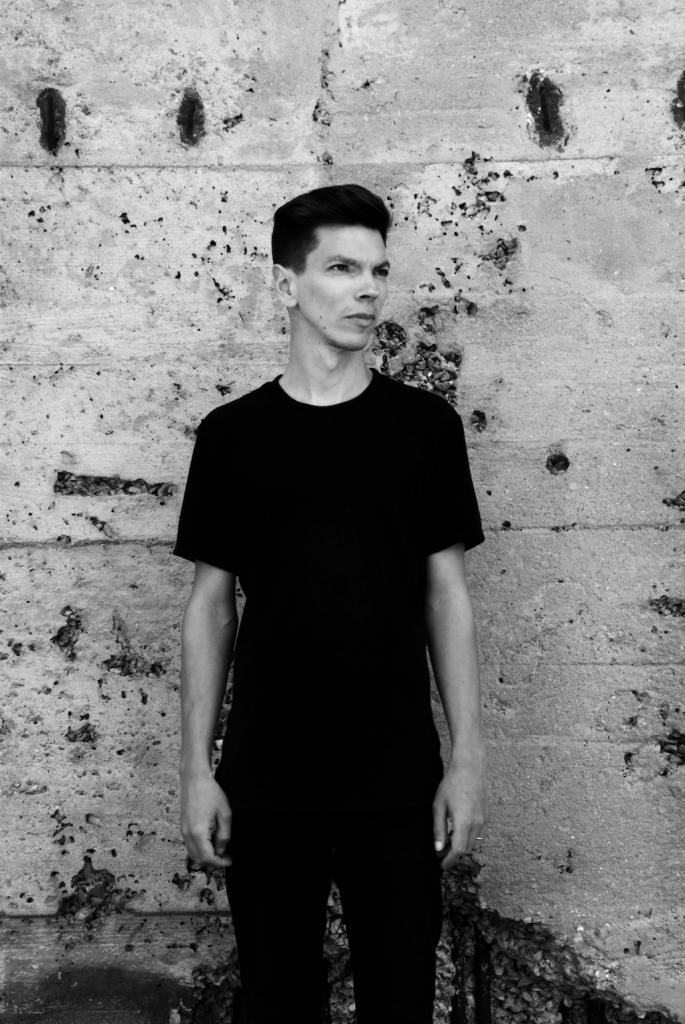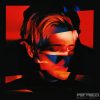Paris-based record label Bromance Records has been steadily becoming one of the best underground labels to emerge within the last couple of years. With their strong and dark aesthetic and their equally well-organized output of music, combined with the incredible talent they have begun to call their own, Manu Barron and Brodinski have crafted together a brilliant record label that’s changing the game.
Last Friday they released their second Homieland Compilation, which features friend of the label Glenjamn on the front, and features label regulars like the boys of Club cheval, Louisahhh!!!, and of course Brodinski himself, but it also featured some unexpected talents like The Blaze and Feral, crafting together a compilation that will draw dedicated fans and newcomers alike.
We had a chance to listen to the compilation in advance, and we had a chance to ask some of the amazing artists on the comp some questions about what Bromance means to them, their music, and so much more. Check out part 1 of our in-depth interview here, and purchase the album here.
BOY STEPHEN
Starting, maintaining, and being successful as a small label is immensely difficult, and yet Bromance has become one of the biggest and baddest to come out in the span of 4 years. What qualities drew you to the team at Bromance and/or the Homieland Compilation? Finally, how did getting on the compilation come about?
I think what initially drew me to Bromance was the togetherness of the whole thing. I think all labels, big or small, have some sort of cohesion to the sound of the music they release, but it’s rare to have a label where everyone involved really is a ‘homie’. I think that’s why it works too, it’s less like ‘hey look at this collection of similar artists that put out music on this label,’ and more ‘look at this huge group of friends that all do tight shit in one place’.
I was asked to be on the compilation by Brodinski the last time he was in LA. We’ve been friends for a couple of years and I had been sending him the demos of my side project Boy Stephen, and he had been playing them. The track on Homieland 2 is I think the one he liked the most out of those demos, so we went with that one.
There is a huge emphasis on family and friendship, right down to the name. Bromance, Homieland, the use of Guillaume Berg on the first compilation and the use of Glenjamn on the second… what does bromance mean to you (both the label and the original definition of the word), and when it comes to the music industry, what importance does this relay?
I think a great part of the dance music industry (flawed as it may be in many ways), is that for the most part there isn’t this aspect of cutthroat competition you get in a lot of other industries and art forms. There’s sort of room for everyone to be successful, so instead of competing with each other everyone has the freedom to help each other out and collaborate freely. I think this is where the best stuff comes from. It’s very inspiring to be able to send things you’re working on to a bunch of people who are amazing artists but also good friends of yours for feedback.
Can you tell us a little bit about your track on the compilation? Even with their lighter-hearted tracks, Bromance seems to be engulfed by a surrounding dark aesthetic, so going into the compilation, what influences did you draw from?
For my track, I abandoned all the hangups about ‘songwriting’ or things of that nature and was focused 100% on making a track for the club. It’s very stripped down, it isn’t melodic, it’s simply aggressive and heavy. I’ve always loved the very sort of simple- though it isn’t actually that simple- sound of detroit and chicago, guys like Frankie Knuckles, Jimmy Edgar, Kyle Hall, and Mr. Fingers. The ability to take just a drum machine and a bassline and that’s it, that’s the track, and it works, is very impressive to me.
It’s also fucking hard as I found out.
Finally, the Homieland compilations are slowly becoming a year end/year beginning feature for fans. What were your biggest highlights musically in 2015, and what can we expect from you in 2016?
I was all over the place in 2015 finishing my first full length album, so I wasn’t actually listening to a lot of music. Of the things I did catch, Jamie XX, Vince Staples, Kendrick Lamar, Tame Impala, and Björk were stand outs.
For 2016 I have a lot coming. My full length album under my M|O|O|N moniker, three EPs as Boy Stephen, and a few other things I can’t talk about yet. It should be a good year.
MYD
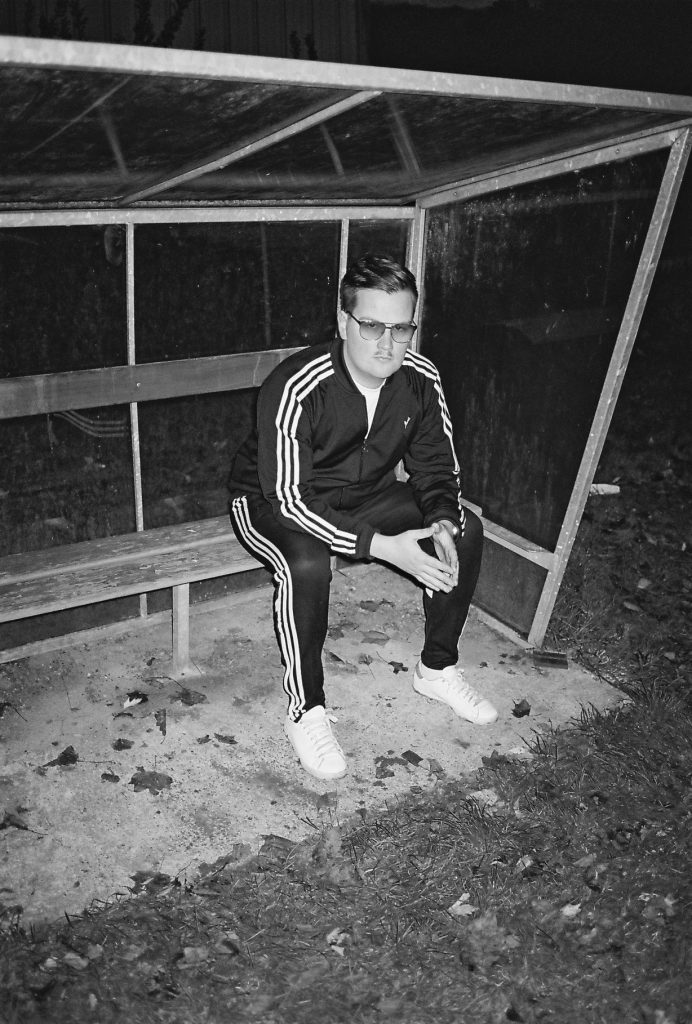
Starting, maintaining, and being successful as a small label is immensely difficult, and yet Bromance has become one of the biggest and baddest to come out in the span of 5-6 years. What qualities drew you to the team at BMC and/or the Homieland Compilation? Finally, how did getting on the compilation come about?
About the Bromance Team, it’s a long love story. I’ve worked with Brodinski and his label for a lot of projects. For now it’s more than a team, it’s a family, we all speak the same language. I always say I’m so lucky to work only with people I love.
With Homieland I always keep 3 or 4 club bangers for it. Last time it was “Uberty” and “Brooklyn” featuring Para One, this time it’s “Again”! I really like the vol. 2 of the compilation. Last time it was a sum up of our crew but now it’s more a sketch of the forthcoming bromance sound.
There is a huge emphasis on family and friendship, right down to the name. Bromance ,Homie land, the use of Guillaume Berg on the first compilation and the use of Glenjamn on the second… what does bromance mean to you (both the label and the original definition of the word), and when it comes to the music industry, what importance does this relay?
When you spend most of your time partying, making music or just hanging with a crew there is two possibilities: you either hate them or you love them. For our crew it’s solution 2, that’s the bromance and that’s Bromance.
Bromance or not, the importance of a solid friendship is really important because you put so much of yourself in your music that you cannot consider it as a classic day job. That’s how you go further and stay the course.
Can you tell us a little bit about your track/remix on the compilation? Even with their lighter-hearted tracks, Bromance seems to be engulfed by a surrounding dark aesthetic, so going into the compilation, what influences did you draw from?
I don’t really feel the dark aesthetic in Bromance now. People still fell the imprint that Gesaffelstein let behind him, but now the Bromance sound is more focused on mixing all creative genres of club music, from rap to house, that’s the Bromance style now.
“Again” is the kind of track I love to play: melodic and a bit too fast to create that kind of epileptic house groove.
Finally, the Homieland compilations are slowly becoming a year end/year beginning feature for fans. What were your biggest highlights musically in 2015, and what can we expect from you in 2016.
In 2015 I focused a lot on creating music: we finished Club cheval first album and created our first live show ever. I produced Brava with Brodinski and released my first Bromance EP. I’m finishing that year as if I’m crossing the finish line of a marathon – really proud and really tired.
For 2016 I’m working on a new EP for Bromance, releasing Club cheval album, and more secret projects.
MAELSTROM
Starting, maintaining, and being successful as a small label is immensely difficult, and yet Bromance has become one of the biggest and baddest to come out in the span of 5-6 years. What qualities drew you to the team at Bromance and/or the Homieland Compilation? Finally, how did getting on the compilation come about?
I met Brodinski when I started working with Manu Barron and Savoir Faire for my management. I always loved how open minded and curious Louis (Brodinski) is; he’s always exploring, searching for new sounds, keeping himself and others interested. I think that’s what makes a great DJ: curiosity and genuine love for the music, and this compilation reflects this aspect of Louis’ work. It’s a labour of love and a musical exploration. It’s not meant to represent a specific sound, but to break the boundaries between styles, open new perspectives.
There is a huge emphasis on family and friendship, right down to the name. Bromance, Homieland, the use of Guillaume Berg on the first compilation and the use of Glenjamn on the second… what does bromance mean to you (both the label and the original definition of the word), and when it comes to the music industry, what importance does this relay?
I’m not particularly drawn to the « family » narrative – I’m more of an outsider. What I like about families is their problems, their dysfunctionalities. “Happy families are all alike; every unhappy family is unhappy in its own way”
Can you tell us a little bit about your track/remix on the compilation? Even with their Lighterhearted tracks, Bromance seems to be engulfed by a surrounding dark aesthetic, so going into the compilation, what influences did you draw from?
Most of my tracks are the result of hours of improvised session in the studio where I try to push my machines out of their comfort zone. ‘Arteries’ was recorded during one of these sessions: It’s based around a bright electro loop, but I ran it through a really nasty distortion and compression fx chain which made the end result completely unpredictable. I kept the best parts of that session and edited what was left until I got something that sounded interesting.
Finally, the Homieland compilations are slowly becoming a year end/year beginning feature for fans. What were your biggest highlights musically in 2015, and what can we expect from you in 2016.
In 2015 I started two new projects : LOST Echoes with Djedjotronic, which is an improvised techno live – and RAAR, a new label I created with Louisahhh. For 2016, we’ll be on the road with LOST Echoes a lot more, experimenting and having fun with the machines on stage. We have the next 3 RAAR releases planned for the next few months too, and I’m also working on a couple of Maelstrom EPs.
FERAL
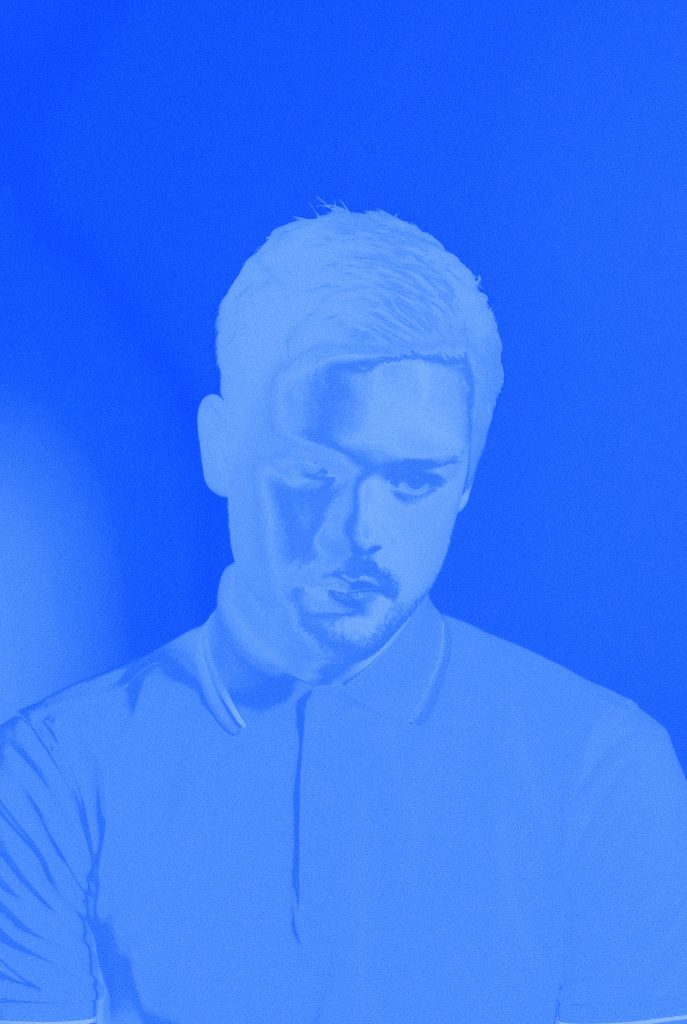

Starting, maintaining, and being successful as a small label is immensely difficult, and yet Bromance has become one of the biggest and baddest to come out in the span of 4 years. What qualities drew you to the team at Bromance and/or the Homieland Compilation? Finally, how did getting on the compilation come about?
Brodinski has a magnetic energy about him. It’s hard to explain, but I think the last four years is a result of that energy drawing likeminded people together, and then as a label honing an aesthetic around that group. If you look at Bromance’s releases over the years, they aren’t afraid to take risks. They put out records that can be challenging and dark, but still fun and functional on the dancefloor. I think that combination is really unique and helps Bromance as a label stand out from the rest.
There is a huge emphasis on family and friendship, right down to the name. Bromance, Homieland, the use of Guillaume Berg on the first compilation and the use of Glenjamn on the second… what does bromance mean to you (both the label and the original definition of the word), and when it comes to the music industry, what importance does this relay?
I’ve known Brodinski for a while, but my first real experience with Bromance was at their party at EDC this year. It felt less like club night and more like a family reunion. It’s amazing for people from Paris, Miami, New York, all to come together and immediately all immediately be on the same wavelength, and that’s a perfect summation of what the label stands for.
My definition of Bromance the word, is when Myd and I lock eyes.
Industry-wise I feel like people are drawn to authenticity, and that sense of family within the label is something you can’t replicate.
Can you tell us a little bit about your track on the compilation? Even with their lighter-hearted tracks, Bromance seems to be engulfed by a surrounding dark aesthetic, so going into the compilation, what influences did you draw from?
My own aesthetic is a lil’ dark, which is what made me a candidate for the compilation in the first place. Bromance balances the heaviness without being too self-serious. My track “WASP”, I think is a bite-sized version of that mentality. At first listen I think it feels like a banger, but just beneath the surface there are all these devious little details that help make it more interesting and give it some depth. I think that duality is something I’m always inspired by, always trying to add more than one layer of emotion to a piece of music.
Finally, the Homieland compilations are slowly becoming a year end/year beginning feature for fans. What were your biggest highlights musically in 2015, and what can we expect from you in 2016?
A lot of my highlights last year came from live shows. Brodinski and Friends in Miami, UNO NYC’s NTS Radio Takeover at MOMA PS1 and The Warp Party at Pitchfork Festival were all amazing. The Warp party was interesting, it was my first time playing out using CDJ’s, which was really upsetting / nerve wracking, but ended up being really fun.
In 2016 I’ll be putting out a new EP, working on a full length record, and hopefully some more practicing on CDJ’s in a room full of people.


Big thanks to all the talented artists who answered this interview. Check out part 1 of the exclusive here. Purchase Homieland Vol. 2 here.


